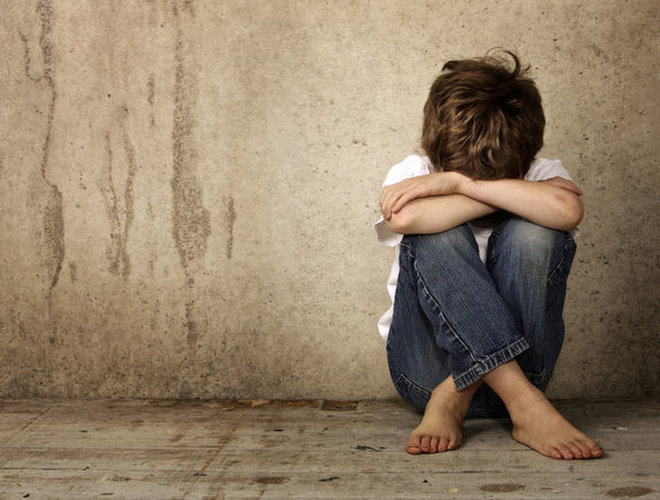Children react in many different ways to the news of divorce. Some go on to look perfectly normal and don't experience any overt signs of difficulty until dating age.
By: Susan Adams, M. Ed.
Reactions To Consider In Children When Divorcing
The best children learn from divorce tends to be that no one loves anyone enough to stay.

Thus, at dating age and on into young adulthood, children of divorce often become commitment phobic. They also fear conflict because for them it means someone may leave.
This article speaks to the 50% of children who do become symptomatic as the divorce occurs.
Children often don't know how to describe their feelings or what to do with them. Thus, they are more prone to acting them out.
Anger is a common reaction to divorce in children. The anger may evolve from several issues. They may be angry at one parent for "letting" another parent leave--or forcing them out. They may show anger because they feel guilty about the separation.Sometimes the anger shows up when there is diminished time for the child as things change.
The anger may show up in a drop in school grades, acting out at school or at home or withdrawl from adults.
Children may feel guilt because they feel responsible for all that has happened. They may think they are bad and that is why a parent left. The guilt may come out as fear or anxiety.
There is also grief. The grief needs to be openly expressed and if parents express their sadness, children will feel more permission to do so. Normalize the feelings.
There may also exist a rejection of reality. They may deny the whole event. This is usually outgrown.
Children may get resentful that one parent is gone or that their family is different from that of their friends.
It is possible that children may demonstrate fear of the future. Especially if the parent with whom they live is depressed, they may worry about what will happen to them.
They may worry that the caretaking parent will leave as well or fear that the leaving parent will reject them. They may be afraid to ask questions. Whining and unusual behaviors are some signs of anxiety and fear.
Children my well feel loss in the separation. Insecurity is common as as the family dissolves so it is very important to make as few changes as possible especially in the beginning.
Loneliness is common for both parents and children. Parents take heed here. It is critical to keep yourself together for the sake of the children.
I recommend therapy with a good licensed relationship therapist when people go through a divorce. Parents need the support so that they can parent their children effectively. If parents look like they are falling apart, the children fear there is no one to take care of them.
This is where we may see kids who get into some kind of problem or trouble and don't tell the parent(s) because they fear that their parents couldn't handle it.
In addition to needing support to parent, anyone going through a divorce, is well-served to find out what went wrong and to fix his/her part in it so that the same mistakes are not repeated.
Loneliness is common in divorce for both parents and children. There is loss and with the loss is the need to have loved ones close by. Children may act out loneliness with attention-getting behaviors--that is, negative attention is better than none.
It is often easier (but not practical) to ignore children until there is a problem.
Other behaviors that may show up include sleep refusal, poor sleep, fear of food, pleasure, or play. Another is doing poorly in school, fighting, whining, crying, unusually noisy or quiet behavior, regressions such as bedwetting and all these may occur at home or at school or both.
Through all the difficulty, it is important for parents to maintain a running dialogue with the children about what is happening and what to expect.
I have always believed that families could get through anything if they would talk about it; talk about how they see things and ask kids to talk about their perspective as well.
Maintain routines as closely to normal as possible. Children read parents well. If you try to make up to the children for the guilt you feel this gives a message that you are not really in charge of things and this makes the children feel insecure.
Don't talk about your own anxieties in front of the children. Don't give them false hope of a reconciliation. Take time for yourself. It will make you a better caretaker. Do your best to help the children have a sense of continuity with both parents.
This means, also, helping the parent who is not there to see the children with ease by not having to worry about your reactions as the kids are transitioned back and forth. Stay pleasant and keep any conversations child-focused.
